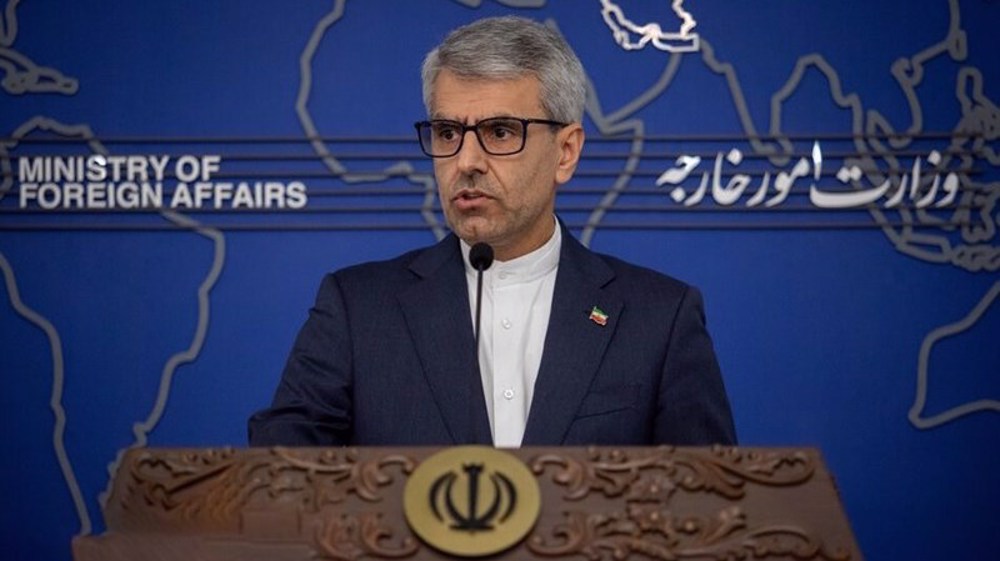Trump's Letter to Iran Echoes His Public Remarks, Tehran Claims
Iran Dismisses Trump’s Letter as Repetitive, Rejects Negotiations Amid Escalating Tensions

ERBIL (Kurdistan24) – Iran has downplayed a letter sent by U.S. President Donald Trump regarding Tehran’s nuclear program, stating that its content merely reiterates his previous public statements. As diplomatic tensions mount over Iran’s nuclear ambitions, Tehran remains defiant, rejecting any notion of negotiation while vowing to resist external pressure.
Iran’s Response: ‘Nothing New’
Iranian Foreign Ministry spokesperson Esmaeil Baqaei confirmed on Monday that Trump’s letter, which was delivered last week by senior UAE diplomat Anwar Gargash, contained no fresh proposals. “The content of the letter is not far removed from Trump's public statements and repeats the same talking points,” Baqaei told reporters in Tehran. He added that Iran’s official response would be communicated through appropriate channels after a thorough review.
Trump, who returned to office in January, has revived his “maximum pressure” campaign against Tehran, reinforcing sanctions policy aimed at preventing Iran from developing a nuclear weapon—an ambition the Islamic Republic has consistently denied. The U.S. has also accused Iran of destabilizing the region through its support for armed groups, including Yemen’s Houthi rebels.
Khamenei Rejects Talks, Strengthens Hardline Stance
Despite Washington’s overtures, Iran’s Supreme Leader Ayatollah Ali Khamenei has categorically ruled out negotiations with the U.S., arguing that such talks would only tighten the grip of economic sanctions rather than relieve them. “Negotiations will not lift sanctions but will instead make the sanctions knot tighter,” Khamenei said on the same day Tehran received Trump’s letter, signaling that Iran has no intention of altering its nuclear trajectory under American pressure.
Iran Engages with International Nuclear Watchdog
Amid the ongoing standoff, Iran’s Deputy Foreign Minister Kazem Gharibabadi is set to meet with Rafael Grossi, the head of the UN nuclear watchdog, in Vienna. According to Baqaei, this meeting is part of Tehran’s ongoing engagement with international regulators, following Iran’s recent discussions with Russian and Chinese officials in Beijing. While Iran insists its nuclear program is peaceful, Western nations remain skeptical, with concerns growing over the possibility of Iran developing nuclear capabilities.
Escalation in Yemen and U.S. Airstrikes
Beyond the nuclear dispute, tensions have intensified following U.S. airstrikes against Yemen’s Houthi rebels, whom Washington accuses of threatening Red Sea shipping lanes and acting as Iranian proxies. Trump described the military action as “decisive and powerful,” vowing to put an end to Houthi aggression while demanding that Iran cease its support for the group.
Iran, in turn, strongly condemned the strikes. Iranian Revolutionary Guards chief Hossein Salami dismissed U.S. accusations, stating that the Houthis operate independently and are “representatives of the Yemeni people.” He warned that while Iran does not seek war, it will deliver a “decisive and conclusive response” if threatened.
Foreign Minister Abbas Araghchi also denounced the U.S. actions, stating that Washington has “no authority” over Iran’s foreign policy. “The time when the U.S. could dictate Iran’s policies ended in 1979,” Araghchi wrote on X, referring to the Islamic Revolution that overthrew the Western-backed Shah. He also accused Washington of committing war crimes by “killing Yemeni people.”
A Dangerous Stand-Off
The latest developments underscore the growing hostilities between Washington and Tehran, as both sides dig into their positions. With Iran refusing to negotiate and the U.S. ramping up its military and economic pressure, the risk of a broader conflict looms large. Whether diplomatic engagement through the UN and key global players can de-escalate the situation remains uncertain, but for now, the Gulf region stands at the brink of further unrest.